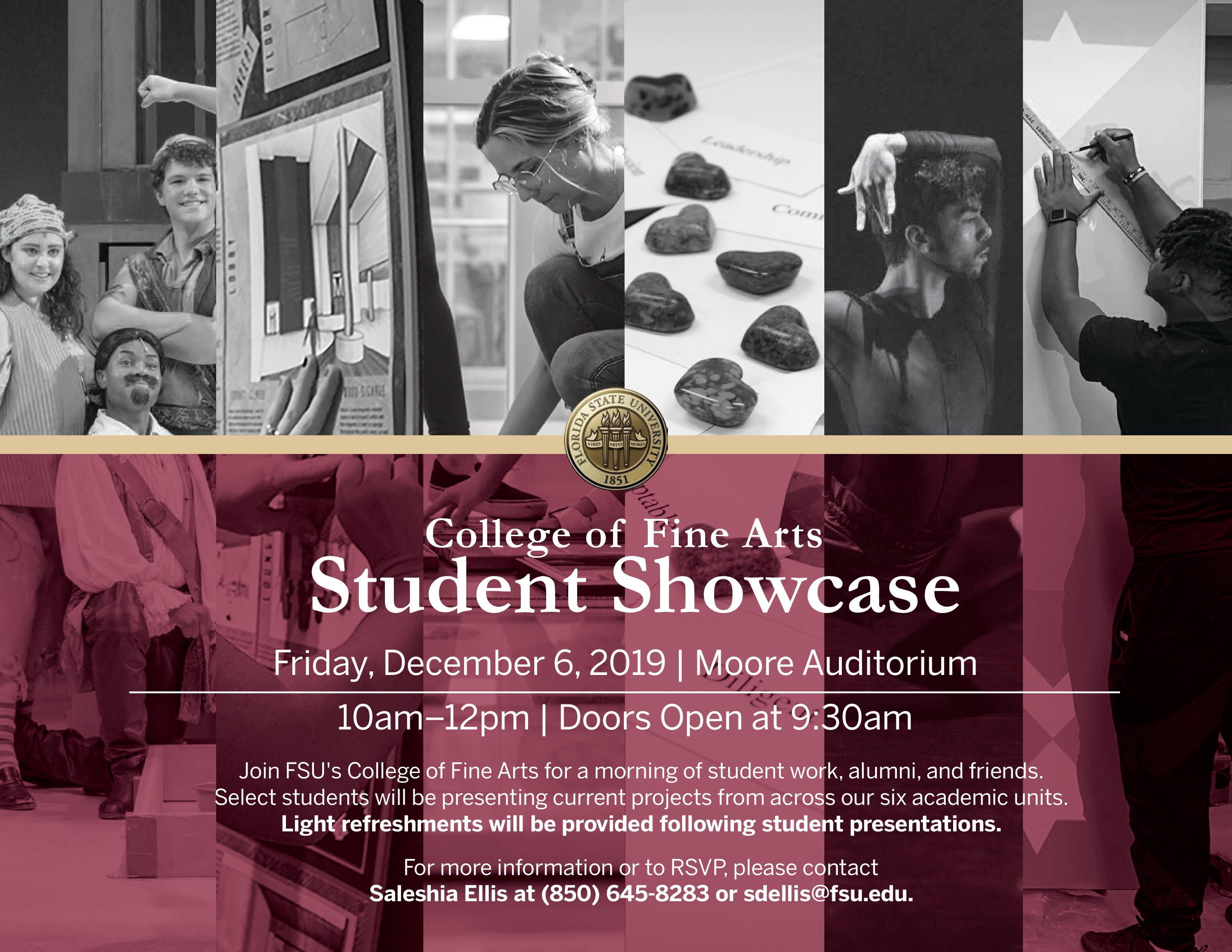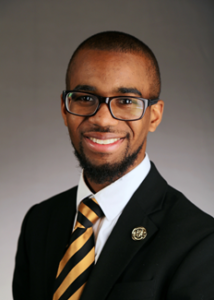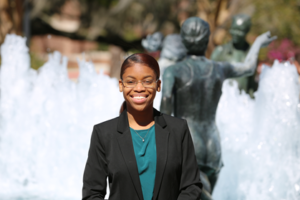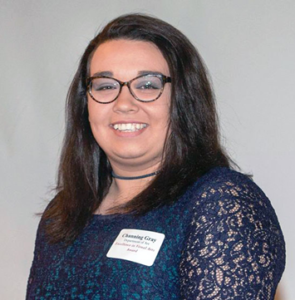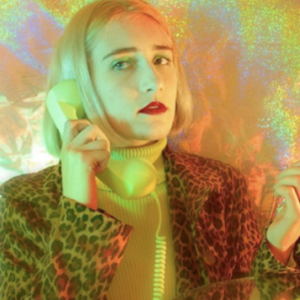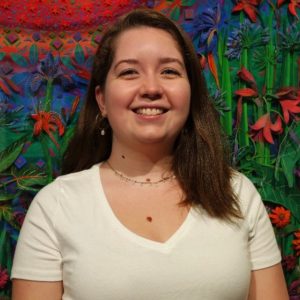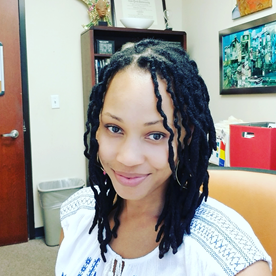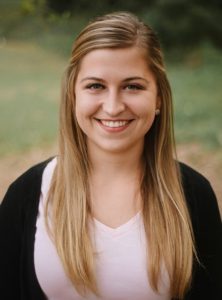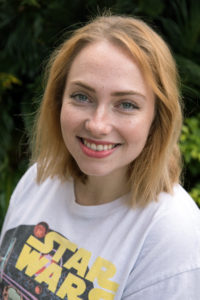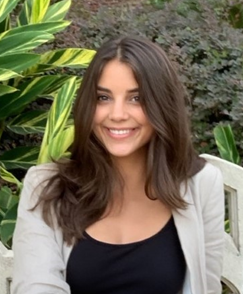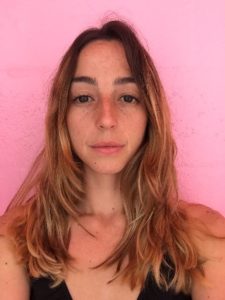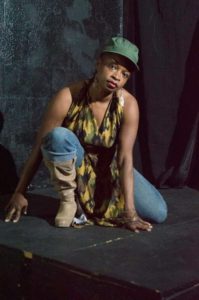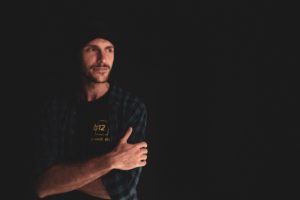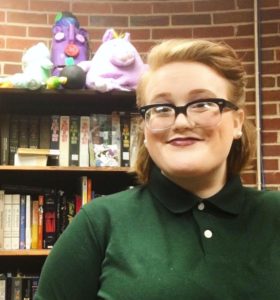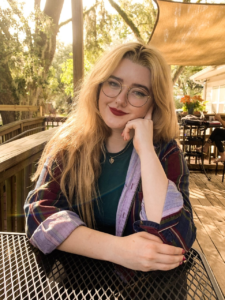College of Fine Arts Student Showcase
Friday, December 6, 2019 in Moore Auditorium
10am-12pm, Doors Open at 9:30am
Join FSU’s College of Fine Arts for a showcase of 13 outstanding students, both graduate and undergraduate, who will present on a range of topics from across our six departments. The College of Fine Arts Student Showcase brings together the greater FSU community to learn about the creative research of our high-achieving students, and allows student presenters to share their research and work in a variety of formats.
We would love to know if any of our alumni or donors will be in attendance. RSVP at the link below. Parking is available in Woodward and Traditions parking garages.
Host:
Dwight James III
Hometown: Jacksonville, FL
James is a poet, photographer, writer, and educator attending Florida State University as a senior majoring in Creative Writing and Theatre. He is a UNCF Scholar, vice president of Poetic Lyricism, and a member of Alpha Phi Alpha Fraternity, Inc. He mentors and teaches students around the cities of Jacksonville and Tallahassee with focus areas in performance poetry, photography, and craft. Dwight enjoys writing, traveling, creating, and helping his peers become better in their respective field. He owes his motivation to his girlfriend, Renelle Williams, and his students of F.L.O.E. After graduating, he plans to continue his career into the TV/Film industry.
Student Presenters:
Myah Freeman, Department of Art
Spring 2021 | Hometown: Jacksonville, FL
Degree: Bachelor of Fine Arts
The Talibé Children of Saint-Louis, Senegal
As a 2019 FSU Global Scholar, this past summer Freeman had the pleasure of interning at a non-profit organization called Maison de la Gare, based in Saint-Louis, Senegal. Her work and research revolved around the social issue of begging talibé children. Given that the country of Senegal is 92% Muslim, the practice of attending Quranic boarding schools is deeply rooted in their society and culture. Along with this practice comes panhandling by the children out in the city streets. And too often may their schools be deprived of its necessary resources. As a result of her research, she has been working to raise awareness of this social issue through presentations and art.
Channing Gray, Department of Art
Spring 2020 | Hometown: Central Florida
Degree: Master of Fine Arts in Studio Arts
Cosmic Connections
Gray’s studio practice focuses on an interest in symbolic narratives, collected objects, and star constellations. By using drawing as a foundation, she creates multi-material works that reference temporary connections she’s made with places, people, and memory. Most of her life, she moved around a lot and didn’t have a lot of material items that she owned. What she does carry with her is a collection of memories. These memories are symbolized through specific objects that she’s gathered through the years and have kept with her as she’s made connections with friends and various spaces. By creating compositions of individuals and personal objects, she’s referencing cosmic constellations of celestial bodies. This presentation will feature work from a recent solo show, studio research, and plans for her upcoming thesis exhibition.
Kassadie Nieto, Department of Art
Spring 2020 | Hometown: Tampa, FL
Degree: BFA in Studio Art
Crushproof
Crushproof is an installation created for the graduating BFA exhibition in April of 2020. This installation consists of a portfolio of prints (screenprint and letterpress), zines, and other miscellaneous objects created using printmaking processes. The project is largely motivated by text, which is sourced only from shipping supply catalogs. The work recontextualizes the sterile, advertising-based language found in these catalogs to draw parallels between the logistics of postage and the intricacies of relationships and communication. The shared themes of trust, anticipation, desire, risk, damage, protection, failure, and more are discussed through text and image.
Jordan Rich, Department of Art Education
May 2020 | Hometown: Fort Myers, FL
Degree: MA in Arts Administration
The Southern Quilting Project: Big Bend Quilt Trail
During Rich’s Summer ’19 internship, Gadsden Arts Center & Museum was preparing for their Southern Quilting Project. The quilting project consists of two parts: an exhibition entitled “From the Cedar Chest: Southern Quilting 1830s to Today” showcasing local quilts and quilting traditions, and facilitating a community art project called the Big Bend Quilt Trail.
Rich’s responsibilities as the point of contact for the Big Bend Quilt Trail included developing community partners, addressing questions, and gathering the required information. The result is a trail spanning Havana, Greensboro, Quincy, and Tallahassee, composed of large painted blocks of various quilt patterns. The 20+ partners for this project include cultural institutions, local businesses, and individuals.
The exhibition is on display at Gadsden Arts Center & Museum in Quincy, FL until December 14, 2019. The Quilt Trail will remain on display for the next year, and a map with additional information is available at quilts.gadsdenarts.org.
Aja Roache, Department of Art Education
Fall 2020 | Hometown: Tallahassee, FL
Degree: Ph.D. in Art Education/Museum Education and Visitor Centered Curation
Group Show
In this presentation, Roache will talk about the importance of the collective nature of art museum work as an administrator and her experiences collaborating with different communities in developing content at both an HBCU art gallery and a rural history museum.
Cynthia (Cindy) Rebecca Evans, Department of Art History
Spring 2020 | Hometown: Lakeland, FL
Degree: Doctor of Philosophy in Art History
Die Effekt Gruppe in the New Tendencies Network: Socialist Utopias through Participation, Ephemera, and Play
New Tendencies emerged as an avant-garde artistic movement in Zagreb Yugoslavia, straddling political pressures of the major power blocs at the height of Cold War tensions. New Tendencies was not a coherent group of artists, but rather a transnational network of artists and art collectives calling for revolutionary and experimental art through research, technology, and innovative artistic practices. Munich-based Die Effekt Gruppe, participated in the New Tendencies exhibitions with a myriad of kinetic objects, immersive art spaces, and interactive objects that invited play toward an interactive, social, and decommodified art. These works were not just a means of reinvigorating perceived stagnant artistic trends, but a way to restructure exhibitions that would echo larger socialist anxieties over capitalist alienation in the tumultuous 1960s landscape. The research highlights the growing politicization of artistic practices against the backdrop of neutralized West German Cold War historiography.
Olivia Morris, Department of Art History
Spring 2020 | Hometown: Watertown, New York
Degree: MA in Museum & Cultural Heritage Studies
“Working From the Known to the Unknown”: Documenting Modernismo Architecture in Historic Puerto Rico
This lecture will focus on the research conducted during the Museum & Cultural Heritage Studies Program 2019 Field School abroad in Puerto Rico. The discussion will focus on the findings on Casa Borelli, an early 20th-century modernismo home in the historic city of Cuamo. This house is an exemplary model of Puerto Rican architecture. In the field, Casa Borelli presented a wealth of information about the modernismo style, the social life of early 20th century Puerto Ricans, as well as the current state of historic preservation on the island. The discussion will focus on those topics, including the methods used to document Casa Borelli: photogrammetry, digital blueprinting, GIS maps, and more. Overall, the presentation will illustrate how art historians in the field work from the known to the unknown to uncover such fantastic pieces of architectural history.
Wendie Alisa Duncan, Department of IA&D
May 2020 | Hometown: Born in Germany, raised in the state
Degree: Bachelor’s in Interior Design
Canopy Care Animal Shelter
The shell of a Toys-R-Us was left in the community of Tallahassee, FL and was redesigned to elevate the wellness of the local area. Taking into consideration the lack of shelters and a humane society operating out of foster homes, it was decided that an animal care shelter would benefit the community and be self-sustaining through revenue services such as dog daycare, training, grooming, a cat garden, dog dwellings, cat condos, and a puppy therapy space open to the entire community. With wellness in mind, the space offers various volunteer opportunities, therapeutic environments, and canopy care for all of Tallahassee’s furry friends.
Zuleydi Gonzalez, Department of IA&D
Summer 2020 | Hometown: Miami, FL
Degree: Master’s in Interior Architecture & Design candidate
Kastad – Icelandic Boutique Hotel
Iceland, the land of fire and ice, is a destination in need of a unique space that will melt away with the surrounding landscape. The boutique hotel will serve as an extension of the neighboring experience by greeting visitors with lush greenery, exposing them to fascinating skies and engulfing all with waters of desirable temperatures. The design will focus on the juxtaposition between the comforting interior environment and the exterior elements exposed throughout. Imitating the opposing forces of the Eurasian and the North American tectonic plates, the space evokes a sense of calmness with the use of neutral colors, concrete and wood while being contrasted with the use of basalt rock created by the cooling lava from the native volcanoes. Kastað will be designed to synthesize two diverging forces that transcends into a unified experience.
Giltrecia Head, School of Dance
Spring 2020 | Tallahassee, FL
Degree: MA in American Dance Studies
The Presence (and Complexity) of (Afrobeat) Contemporary African Dance in the DMV
Growing in the realm of popularity are African artists gaining mainstream attention globally, with attention to those from Ghana, Nigeria, Uganda, Congo, Cote D’Ivoire and Ethiopia. In the Washington DC, Maryland and Virginia urban triad area, known as the DMV, there is a growing nuance of African-based movement performed to the secular social music of Africa and the African Diaspora. This trend also shares various cultural identities both socially and politically. The cultural influences in a region bearing the Nation’s capital are contributed to the Americanization of social movements. This presentation is intended to provide a glimpse into Afrobeat popularity in the DMV, the contextual influences that are identified with Afrobeats and how they impact social change, as well as the projected outcomes of this genre in relation to community and performance awareness.
Aigars Larionovs, School of Dance
Spring 2020 | Hometown: Riga, Latvia
Degree: MFA Returning Professional
Rules of Engagement 2.0
Drawing on the movement traditions of Capoeira (an Afro-Brazilian movement culture) and martial arts, the project investigates the dancer’s ability to adapt and be present in the studio and on stage. The work is based on forming a synergetic relationship between improvisation and choreography. Using simple ideas, like “attack” and “defense”, we explore evolving movement strategies and in-the-moment decision-making. This process of studio research is geared towards creating movement situations and fine-tuning them to encourage the performers’ exploration of their physical limits. Inspired by more than a decade of practicing capoeira in conjunction with contemporary dance and contact improvisation, the work provides a platform for individual and group choreography through task-based movement structures. With original music by Aaron Houston and an installation by Austin Yorke, Rules of Engagement 2.0 is a collaborative process beyond the realm of dance.
Mackenzie Bounds, School of Theatre
Spring 2020 | Hometown: Middleburg, FL
Degree: MA in Theatre Studies
Ghosting the Machine: Spectral Spectatorship in Virtual Reality
“Welcome. This is not a game. This is not a movie. This is a piece of immersive theatre with many tangled threads. Explore the story and untangle the truth. But remember: ‘Truth is a matter of perspective.’” This is the exposition of The Invisible Hours, indeed an immersive play—except experienced in virtual reality (VR). Participants don a VR headset and, in many ways, spectate just as they would in a live immersive show. A free agent in a created world, they traverse where and when they please as scenes unfold simultaneously. Uniquely, participants embody a ghostly presence in that world: invisible and intangible, they may even walk through the play’s principal characters. This presentation briefs a few key ideas related to the metaphysical relationship between spectators and VR simulations. When the space and its inhabitants comprise of different matter than our own, how do we “ghost the machine?”
Bethany Brownrigg, School of Theatre
Spring 2020 | Hometown: Orlando, FL
Degree: BA in Theatre
It’s True, It’s True, It‘s True: Exploring the Relationship Between Memory, Cultural Violence, and Theatre
Breach Theatre’s 2017 production ”It’s True, It’s True, It’s True” is a contemporary tribunal theatre piece depicting the 1612 rape trial of Italian painter Artemisia Gentileschi against her tutor Agostino Tassi. Using 400-year-old court transcripts as its source text, the script juxtaposes modern production choices with Baroque subject matter to draw parallels between the treatment of women throughout history. Sexual assault has been depicted in a spectrum of artistic mediums, from paint to performance, creating a body of physical evidence in the history of violence towards women. Its status throughout past and present prompts us to ask the question: how much has changed for women in contemporary society? Realizing how this culture of violence against women has endured, I am challenged by the task of creating my own version of this show through a collegiate American female lens to address the pervasiveness of this culture in my own university experience through the artistic exploration of the relationship of memory and cultural violence through performance.
See a recap of the 2018 Student Showcase here.
